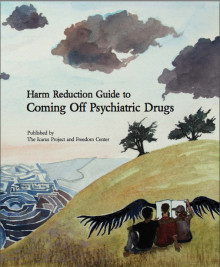 Some of you will know that I was a neuroscientist for 25 years. I left the field because I did not feel that the idea of so-called ‘brain diseases’ and drug treatments were doing much to help people recover from addiction and mental health problems.
Some of you will know that I was a neuroscientist for 25 years. I left the field because I did not feel that the idea of so-called ‘brain diseases’ and drug treatments were doing much to help people recover from addiction and mental health problems.
The more I read, the more I feel that parts of psychiatry – not all – has a lot to answer for. Here’s an excellent blog from the Mad in America website, by Robert Berezin from Harvard Universty.
‘During my lifetime I have witnessed the fall of Freudian psychiatry and the ascension of molecular psychiatry. Unfortunately, we have gone from the frying pan into the fire. I certainly do not subscribe to old-fashioned psychoanalytic ideas which had been beset by considerable problems throughout the years. Its practice suffered from dogmatic theories and miscast beliefs, which worked to the detriment of responsiveness to our patients.





